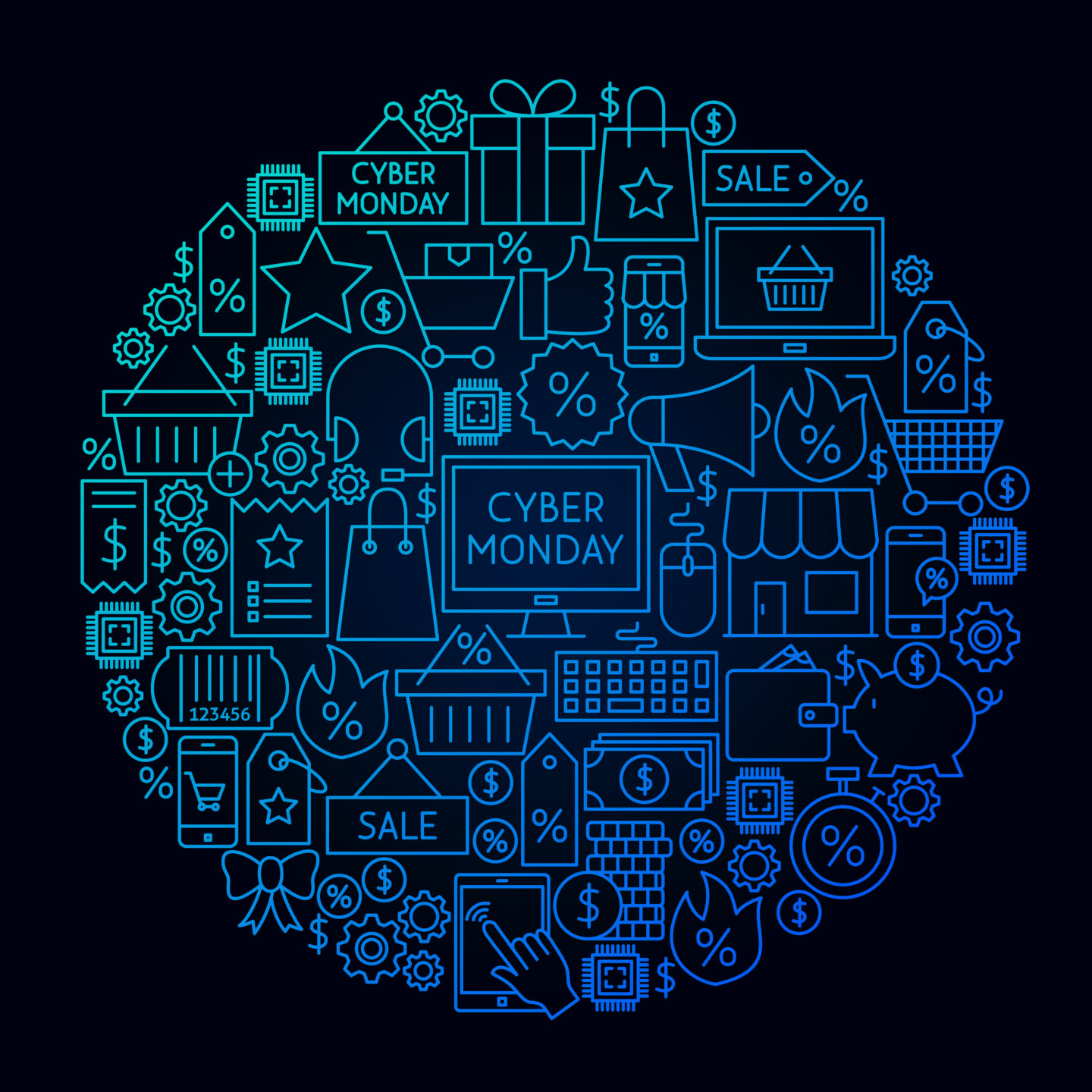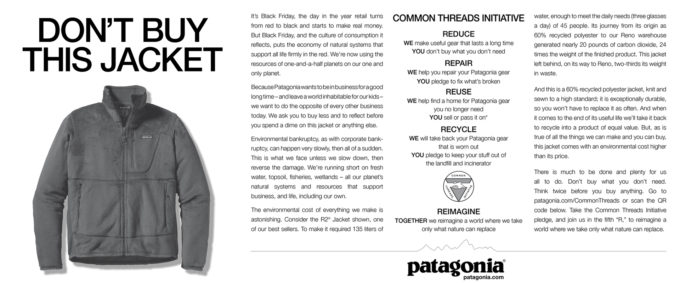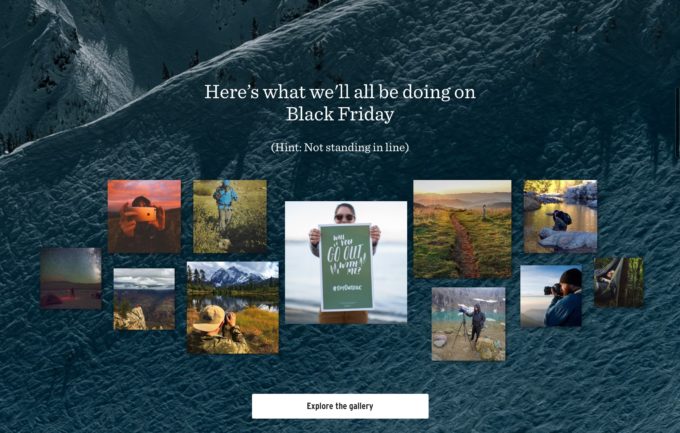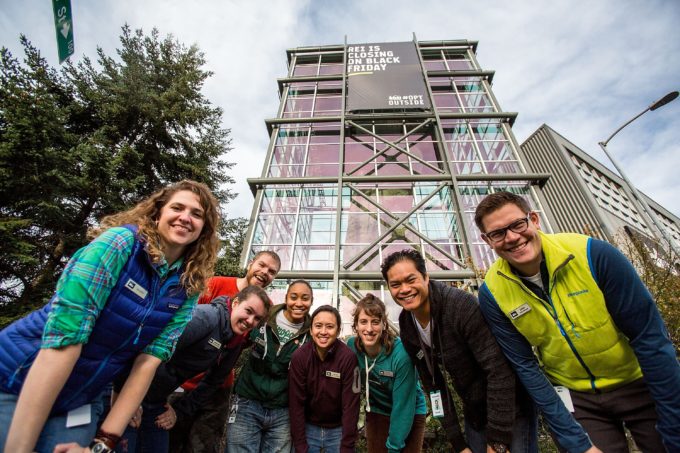
Digital sustainability: it pays to be a leader, not a laggard
Companies that excel in both digital and sustainable transformation attract a stock market premium, according to research. So, how do you tap into that value? ...

by Julia Binder Published 29 November 2021 in Sustainability • 4 min read
“Don’t Buy This Jacket” urged leading sustainable fashion brand Patagonia in 2011, when it published a now iconic full-page ad in the New York Times. Ten years on, this single-firm boycott has inspired countless other companies and grown into a global Anti-Black-Friday movement. To understand its relevance, let’s look at its origins and the major issues associated with Black Friday, and by extension, Cyber Monday.

The day after Thanksgiving, Black Friday has become the most important shopping event of the year, as millions of consumers shop online or in the stores to kick off their Christmas shopping. To further fuel their spending, producers and retailers traditionally offer discounts, deals, and sales to encourage impulse buying behavior. While Black Friday was initially a US phenomenon, it is now “celebrated” around the world – with negative effects on people and planet. Cost savings for customers come at a high price, which society and the environment must pay.
From a social perspective, the massive demand for products, often of low quality, comes at the cost of workers further up the supply chain, whose (mental) health and safety are negatively affected, it has been found. Yet, the problems go beyond the manufacturing sector to the retail level, as the day puts considerable pressure on small business owners who cannot afford to compete with the aggressive sales strategies of large retail chains. Black Friday is also known for triggering high levels of violence, as consumers fighting for the best deal overstep normal boundaries. Overall, Black Friday reinforces mindless consumerism while worsening social inequalities globally.
Turning our gaze toward the environmental consequences, things look even worse. Just a week after COP26 concluded with the urgent appeal for immediate climate action, many companies have now committed to net zero pledges to decarbonize their businesses. Yet participation in a day that is all about promoting impulse purchases, thereby increasing overconsumption, stands in stark contrast to our climate reality. The necessary shift towards a sustainable future requires a rethinking of our consumerist lifestyle, moving our focus from acquiring unlimited amounts of low-quality products, toward mindful consumption of high quality, fair, and environmentally friendly produced products – in short, the polar opposite of what Black Friday stands for.

Alongside consumer boycotts and activists from environmental groups like Fridays for Future or Extinction Rebellion, an increasing number of companies and retailers have started to visibly distance themselves from Black Friday. In the UK, 85% of independent retailers declared a boycott, the largest number ever. In addition, purpose-driven companies are finding creative ways to run “opt-out” campaigns, which not only boycott Black Friday, but effectively turns it into Green Friday by encouraging the shift towards sustainability. Here are some of my favorite Green Friday initiatives in 2021:
For the sixth year, REI, an American outdoor retailer, closed its stores on Black Friday and awarded every employee a paid day off work to spend quality time outdoors with family and friends. Similarly, Swedish fashion brand Asket and Swiss textile brand Freitag closed their own stores, encouraging their customers to swap their used products instead of buying new ones.

Some companies turned Black Friday upside down by charging a price premium instead of reducing prices. Yes, really. Companies like the maternity rental platform For the Creators slightly increased its prices on Black Friday, donating the price premium to charity alongside a matching donation. Fundraising for charitable purposes is among the most popular initiatives. For instance, British surf brand Finisterre declared it would donate £2.50 for every purchase made over the Black Friday weekend to its foundation. Going a big step further, drinkware company MiiR pledged to donate 100% of its online and store sales on Black Friday to Charity: Water.
And what did movement leader Patagonia do in 2021? After years of bold Anti-Black-Friday campaigning, such as donating 100% of its sales on Black Friday in 2016 (an astonishing $10 million), this year the sustainability pioneer was quieter. Instead, the company is focusing on implementing its new mission to “Save our Home Planet” across its strategy, operations, and culture in an ambitious attempt to further green the business – not just this one Friday of the year, but every day.
When it comes down to really changing our lifestyles, it is incredibly difficult for both producers and consumers to give up the short-term benefits of revenues and consumption in an effort to protect our planet in the long term. While opting out of Black Friday, and Cyber Monday, is just a small step in the right direction, we all need to embark on this journey one step at a time. This is why I didn’t buy anything on Black Friday. Are you going to join the movement next year?

Professor of Sustainable innovation and Business Transformation at IMD
Julia Binder, Professor of Sustainable Innovation and Business Transformation, is a renowned thought leader recognized on the 2022 Thinkers50 Radar list for her work at the intersection of sustainability and innovation. As Director of IMD’s Center for Sustainable and Inclusive Business, Binder is dedicated to leveraging IMD’s diverse expertise on sustainability topics to guide business leaders in discovering innovative solutions to contemporary challenges. At IMD, Binder serves as Program Director for Creating Value in the Circular Economy and teaches in key open programs including the Advanced Management Program (AMP), Transition to Business Leadership (TBL), TransformTech (TT), and Leading Sustainable Business Transformation (LSBT). She is involved in the school’s EMBA and MBA programs, and contributes to IMD’s custom programs, crafting transformative learning journeys for clients globally.

17 July 2024 • by Michael R. Wade, Evangelos Syrigos in Sustainability
Companies that excel in both digital and sustainable transformation attract a stock market premium, according to research. So, how do you tap into that value? ...

11 July 2024 • by Stéphane J. G. Girod in Sustainability
A series of watershed events forced CHANEL out of its comfort zone, culminating in the launch of CHANEL Mission 1.5°. With this new strategy, the luxury fashion house embarked on a journey...

5 July 2024 • by Avni Shah in Sustainability
Creative industries have a key role to play in creating positive social change. Here are six key insights to help them achieve their goals. ...

3 July 2024 • by Richard Baldwin, Salvatore Cantale in Sustainability
The EU Corporate Sustainability Reporting Directive (CSRD) will impose comprehensive and standardized sustainability reporting responsibilities on firms, adding unprecedented complexity to mergers and acquisitions. ...
Explore first person business intelligence from top minds curated for a global executive audience